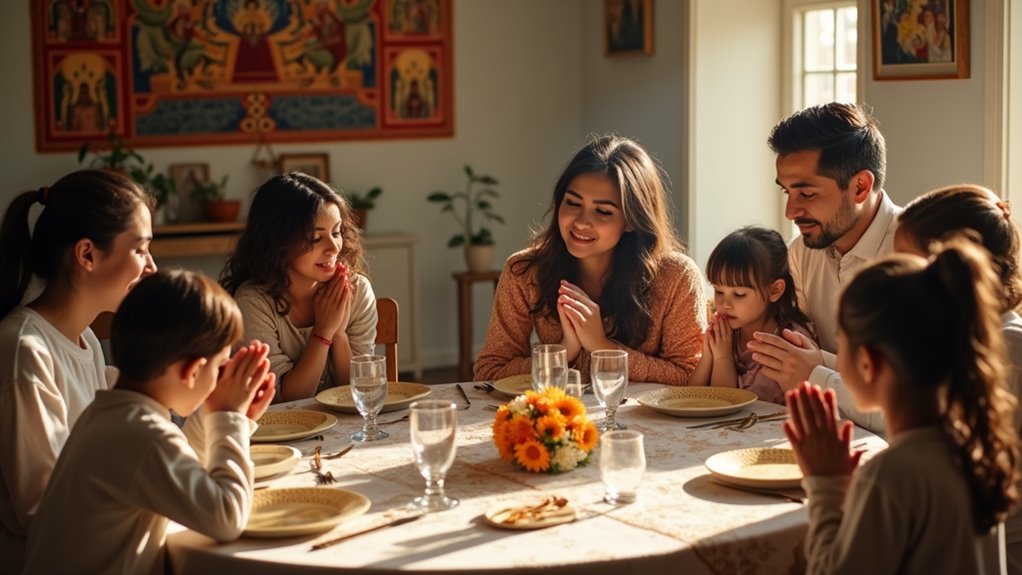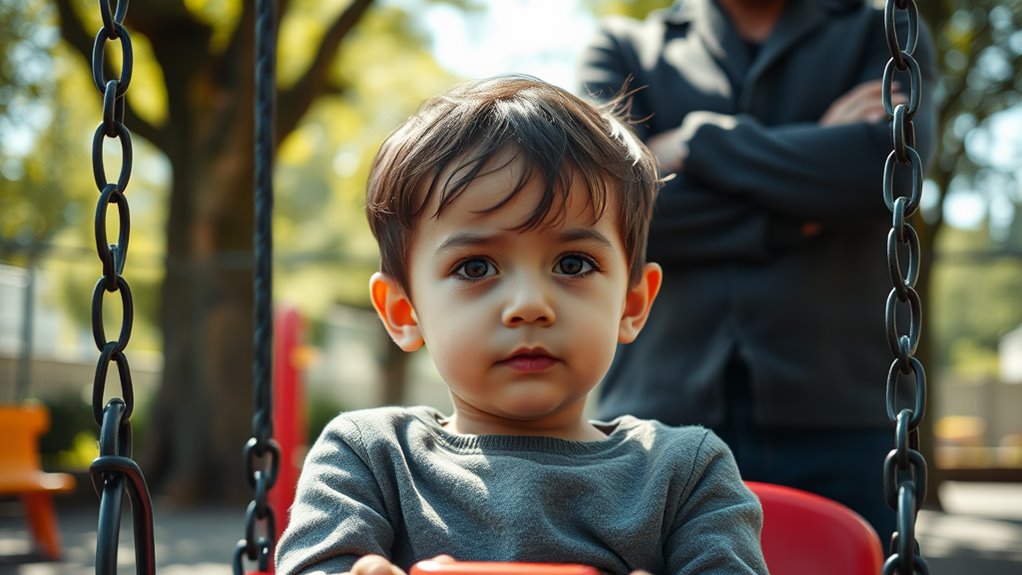Religion shapes how you and your family parent and live together. It influences your values, traditions, and even daily routines. For instance, Christian families might emphasize love, while Muslim families stress discipline. These different teachings create strong family bonds but can also lead to disagreements. Celebrations and rituals, like family dinners or prayer times, make you feel connected and offer lessons in kindness. Plus, cultures play a role too, adding flavors to parenting styles. So, whether it’s laughter over shared stories or dealing with challenges, religion really impacts family life. Stick around, and you’ll discover even more about this fascinating topic!
Historical Context of Religion and Family
The interplay between religion and family has profoundly shaped parenting practices throughout history. Think about it: from ancient times to today, families have looked to their beliefs to guide how they raise their kids. In many cultures, religious teachings acted like a roadmap for parents. They provided rules, values, and a sense of community, which helped families stick together.
You might find it interesting that many traditions, like family gatherings and celebrations, are often tied to religious practices. For instance, holidays can bring families together, where they share stories, eat special foods, and create lasting memories. These moments can teach important lessons about love, kindness, and respect.
However, not all families share the same beliefs. That’s totally okay! Different religions have their own unique approaches to parenting. Some might focus on discipline, while others might emphasize open communication.
In the end, whether you’re lighting candles for a holiday or gathering for a family meal, religion plays a big role in how you connect with your family. It shapes your values, traditions, and even how you deal with challenges.
Major Religious Beliefs and Parenting Styles
Different religious beliefs greatly influence parenting styles, shaping how parents raise their children.
For example, in Christian families, you might notice an emphasis on love, forgiveness, and teaching values like honesty. Parents often read Bible stories to their kids, hoping to instill important lessons.
On the other hand, in Muslim families, parents may focus on discipline and respect, incorporating daily prayers into their routines. They often encourage their children to learn about their faith, which helps build a strong sense of identity.
In Jewish households, traditions like Shabbat dinners play a big role. Parents teach their kids about community and history, creating a warm, bonding experience around the dinner table.
Buddhist parents might stress mindfulness and compassion, guiding their children to think about their actions and the feelings of others.
They often practice meditation as a family, which can be a peaceful way to connect.
Impact on Family Dynamics
How does religion shape family dynamics? Well, it can really bring families closer together! When you share similar beliefs, it creates a strong bond. You might find yourselves attending services, celebrating holidays, or even volunteering as a family. These shared experiences can make family time feel special and meaningful.
On the flip side, different religious views within a family can sometimes lead to disagreements. Imagine two parents who see things differently—it’s like trying to decide on a movie when one wants a comedy and the other prefers a drama! Finding common ground is key, and it helps if everyone respects each other’s beliefs.
Also, religion often guides how families handle challenges. Whether it’s a tough day at school or a bigger life change, prayer or spiritual practices can provide comfort and strength. In this way, faith can be a source of resilience, helping families to navigate through life’s ups and downs together.
Ultimately, religion influences how you communicate, celebrate, and support each other. So, whether you’re singing songs in church or having discussions at the dinner table, your family dynamics are likely shaped by your shared beliefs and values.
Cultural Variations in Child-Rearing
Religion plays a significant role in shaping child-rearing practices, but cultural variations also contribute to how families approach parenting. For instance, in some cultures, kids are raised with a strong emphasis on respect for elders, while in others, independence and self-expression might take center stage.
You might notice that some families encourage their children to make decisions, while others prefer to guide them closely, ensuring they follow family traditions.
In many Asian cultures, education is often seen as the key to success, so parents might push their kids to excel academically. On the flip side, some Western cultures often prioritize play and creativity, allowing children to explore their interests more freely.
Of course, every family is unique. You might’ve a mix of influences that shape your parenting style. And that’s perfectly okay!
It’s fascinating how culture can blend with religion, creating a rich tapestry of child-rearing practices. So, whether you’re cooking a traditional meal or celebrating a holiday, remember that these cultural variations can add so much flavor to parenting and family life.
After all, variety is the spice of life!
Religious Rituals and Family Life
Incorporating religious rituals into family life can deepen bonds and create a sense of belonging. When you gather for prayers, celebrations, or special observances, it brings everyone together. These moments can be filled with laughter, stories, and even a bit of dancing!
Think about it—sharing traditions like lighting candles for a holiday or saying a special prayer before meals can make your family feel united.
Rituals can also teach valuable lessons. For instance, when you celebrate acts of kindness or gratitude, you’re not just having fun; you’re showing the importance of these values. Kids learn by watching, so when they see you practicing your beliefs, they’re likely to adopt them too.
And let’s not forget about the stories and history that come with these rituals. They can spark interesting conversations where everyone shares their thoughts.
Plus, having a routine can be comforting, especially during tough times.
Challenges and Conflicts in Modern Parenting
Maneuvering the complexities of modern parenting can feel overwhelming, especially when balancing personal beliefs with the diverse influences surrounding your family. You might find yourself caught between your own values and the pressures of society, friends, or even social media. It’s like walking a tightrope while juggling flaming torches—exciting but a little scary!
One challenge is the clash of ideas about discipline, education, and lifestyle choices. You may believe in certain traditions, like having family dinners or attending religious services, but your kids might want something different. Maybe they prefer hanging out with friends instead. This can lead to conflicts that feel more like a wrestling match than a family discussion!
Communication is key here. Talk openly with your kids about your beliefs and listen to theirs too. It’s important to find common ground. You can even make it fun—try family brainstorming sessions over pizza!
Balancing your values and their desires isn’t easy, but it can lead to stronger family bonds. Remember, you’re all learning together, and every challenge is just another opportunity to grow as a family.





